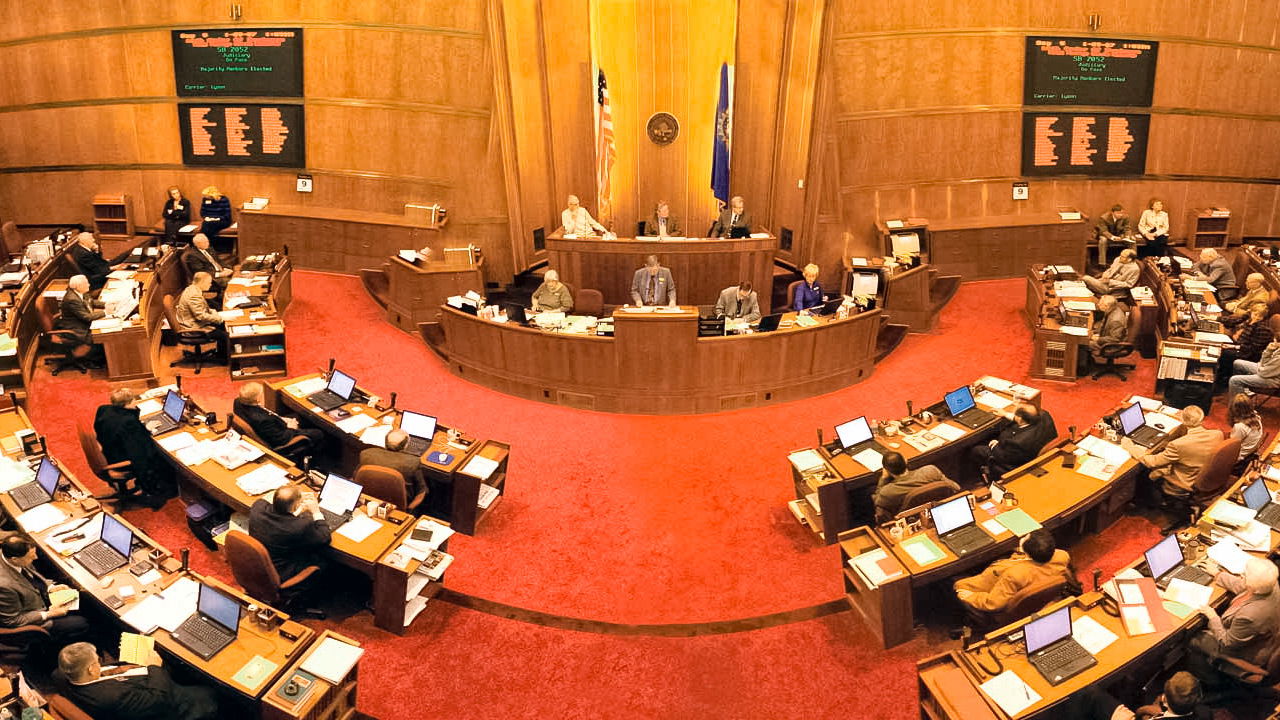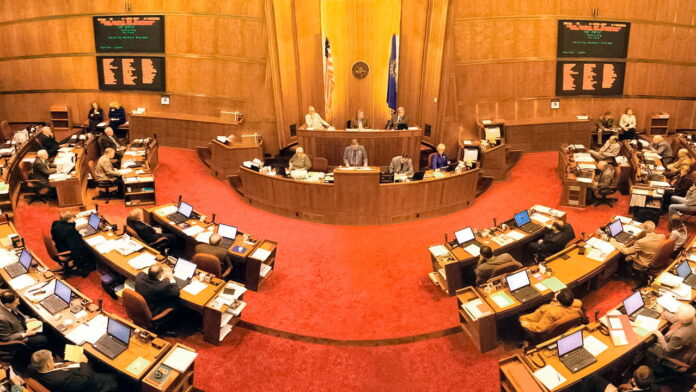
North Dakota lawmakers have voted against a proposal to place sports betting legalization on the 2026 general election ballot. During a floor vote on Wednesday, the state House of Representatives rejected House Concurrent Resolution 3002 with a decisive 70-24 vote.
The decision followed extensive debate, with legislators raising concerns about gambling addiction and the potential negative impact on college athletes.
The proposed resolution aimed to amend the state constitution, allowing the authorization and regulation of sports betting on professional and collegiate sports. Had it been approved by voters, the resulting tax revenue would have been directed to benefit K-12 public schools across the state.
Supporters of the measure argued that legalizing sports betting could provide a new revenue stream for the state, estimated between $25 million and $30 million annually. Rep. Scott Louser, R-Minot, a vocal proponent of the resolution, argued North Dakota residents should be allowed to have their say on the topic.
“North Dakotans have never had the chance to vote on this themselves,” Louser said. “I would ask for a green (yes) vote whether you would vote ‘yes’ or ‘no’ on the general election. Allow your constituents and your voters the opportunity to have their say in their voice.”
Rep. Greg Stemen, R-Fargo, echoed Louser’s sentiment, urging lawmakers to give citizens the opportunity to express their opinions on the matter. “There’s a quote out there that says, ‘Be curious, not judgmental,’” Stemen said. “I’m curious how many of the citizens of North Dakota want sports betting. Let’s give them an opportunity.”
However, opposition to the resolution was strong, with lawmakers voicing concerns about potential social and financial consequences. Rep. Alisa Mitskog, D-Wahpeton, warned of the dangers associated with gambling addiction, citing personal experiences with individuals burdened by betting-related debt.
“This is one of the most concerning things that we’re going to, in my opinion, decide on this session, because it’s real,” Mitskog said, sharing the story of a waiter who accumulated $250,000 in sports betting debt.
Rep. Lawrence Klemin, R-Bismarck, expressed concerns about the accessibility of online sports betting through mobile devices, which allow bettors to place wagers anytime and anywhere. “Members of the assembly, I hold in my hand the new gaming device if we start down this road,” Klemin said while holding up his cell phone.
“You can use it in this chamber, probably under your desk without anybody watching you. You can use it at home while you’re sitting on the toilet,” he illustrated.
Klemin also raised issues regarding the impact of sports betting on college athletes, citing statistics indicating that one in three high-profile athletes have received abusive messages from individuals with betting interests.
Opponents further pointed out that public interest in legalizing sports betting could still be pursued through citizen-initiated ballot measures if desired.
The vote marks a reversal from the 2023 legislative session, during which a similar resolution narrowly passed the House but failed in the Senate. With the Legislature meeting only in odd-numbered years, the next opportunity for a statewide referendum on sports betting will not come until 2028.
Although the statewide measure failed, sports betting remains available at tribal casinos within North Dakota under existing agreements. Several tribes have amended their compacts to offer in-person sportsbooks, an option not affected by the legislature’s recent decision.
Louser expressed frustration at the opposition’s arguments, stating that North Dakota residents already engage in betting activities, often through out-of-state platforms. “If it’s really our position as a Legislature that we’re opposed to gaming, I hope we’re going to see a delayed bill to ban all gambling in North Dakota this session,” Louser said. “And I sure hope none of us, or our friends or family, bet on Notre Dame and Ohio State on Monday night.”
Despite repeated efforts to legalize sports betting through legislative and ballot initiatives, the road to statewide legalization remains uncertain. Past attempts, including a 2019 legalization bill and ballot initiatives in 2021 and 2023, have faced similar challenges. In 2022, Governor Doug Burgum rejected a proposal that would have granted tribal exclusivity for statewide sports betting, keeping legal betting confined to tribal lands.














